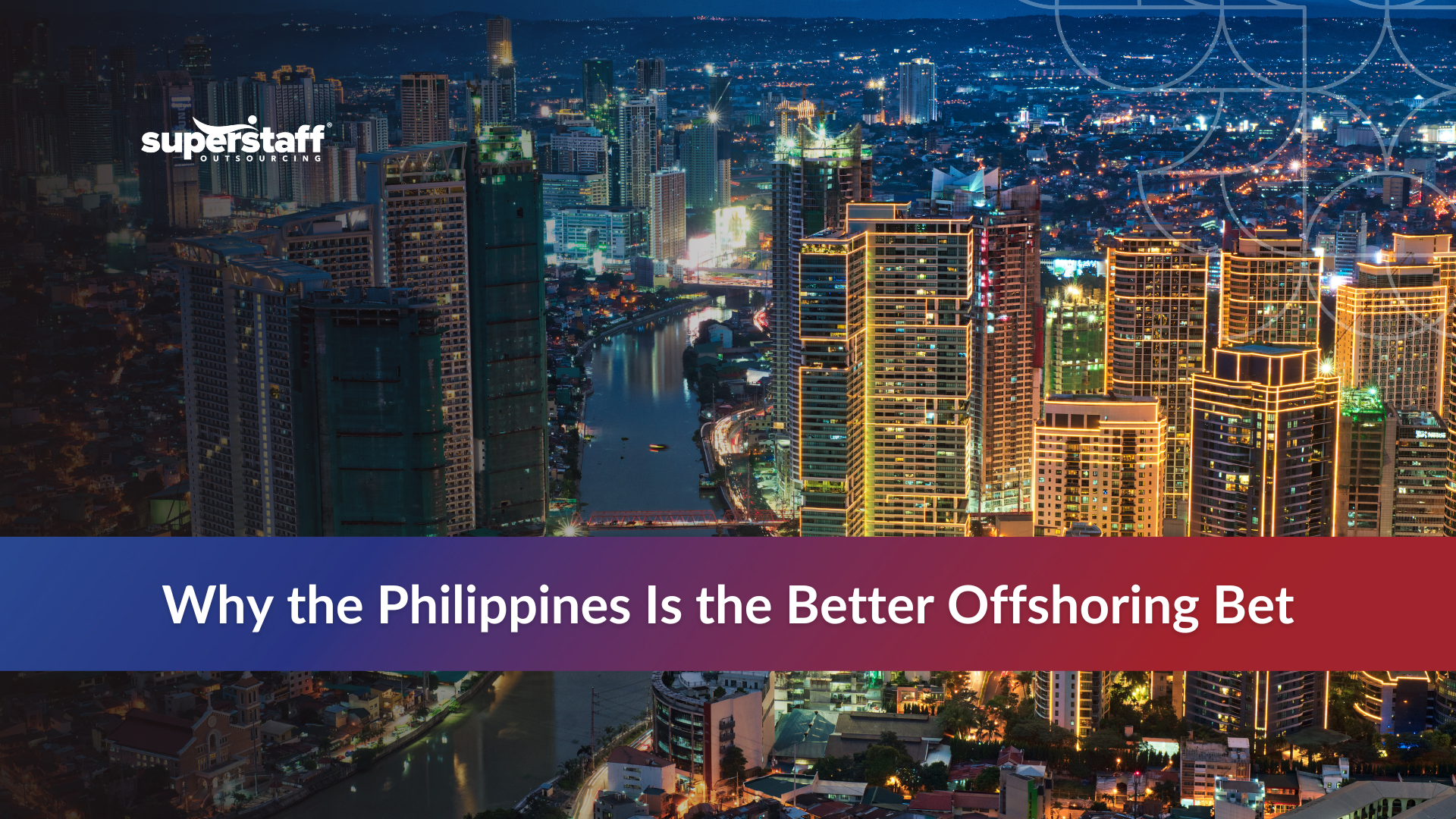
August 28, 2025 — Manila, Philippines
The escalating trade dispute between Washington and New Delhi has sent ripples across the global economy, with U.S. tariffs on Indian goods reaching an unprecedented 50%. What was once an unshakable strategic partnership is now marred by retaliatory rhetoric and disrupted supply chains. As India scrambles to mitigate the fallout with tax reforms and self-reliance campaigns, U.S. businesses are reassessing their global strategies—including where to build reliable offshore partnerships for customer service outsourcing Philippines and beyond.
U.S.–India Relations at a Breaking Point
The tariffs, imposed by President Donald Trump in response to India’s continued purchases of Russian oil and weapons, are some of the highest in the world. For decades, India has been a central player in the U.S. offshoring and outsourcing landscape, particularly in IT services and customer support.
But with tariffs disrupting millions of livelihoods across India’s export-driven industries—from textiles to technology—the U.S. is signaling that the world’s fifth-largest economy can no longer be taken for granted as a stable partner. Trade negotiations between the two nations, once anticipated to strengthen ties, have now been shelved.
For American companies, the uncertainty comes with real costs: potential supply chain breakdowns, rising operational expenses, and an environment where long-term business planning in India looks increasingly risky. This Philippines vs India outsourcing scenario has sharpened the focus on alternative destinations.
The Philippines: A Steady Hand in Unsteady Times
While India navigates economic turbulence, the Philippines offers U.S. firms something invaluable: stability, predictability, and alignment with American business needs.
Proven U.S. Alignment – The Philippines has long been recognized as one of the most U.S.-friendly countries in Asia. From cultural compatibility to strong diplomatic ties, American companies find it easier to establish and scale operations here compared to other offshore markets.
Skilled English-Speaking Workforce – The country produces over 700,000 college graduates annually, many with high English proficiency and strong customer service orientation. This makes it particularly attractive for customer service outsourcing Philippines, where communication skills and empathy are crucial.
Cost-Effective Yet High Quality – Like India, the Philippines offers significant labor cost savings. But unlike India’s increasingly volatile business climate, the Philippines maintains a consistent environment that allows U.S. firms to maximize ROI while minimizing geopolitical risks.
Time Zone Advantage – Serving as a bridge between the U.S. and Asia, Philippine outsourcing hubs such as Manila and Clark offer 24/7 support that aligns with North American business hours.
Shifting the Balance of Offshoring Power
India’s decades-long dominance in IT and offshoring services is not likely to vanish overnight, but the momentum is shifting. With New Delhi’s growth prospects slowing, and Washington imposing what experts liken to a “quasi-sanction” on trade, companies are accelerating diversification.
The Philippines, already home to more than 1.5 million outsourcing professionals, is primed to absorb this shift. Sectors such as healthcare support, finance and accounting, logistics, and e-commerce services have expanded rapidly in recent years, reinforcing the nation’s position as the “Call Center Capital of the World.” The offshoring trend is now tilting in Manila’s favor.
Economic Opportunities for U.S. Firms
For small and midmarket companies in particular, the disruption between the U.S. and India opens the door to tap into the Philippines’ outsourcing ecosystem. Unlike larger corporations with vast international footprints, SMEs depend on reliable partnerships to scale.
Offshoring companies in the Philippines offer:
- Scalable operations tailored to business size and growth trajectory.
- Multilingual support, particularly in English and Spanish, crucial for North American markets.
- Digital capabilities in AI, data analytics, and automation, helping businesses modernize processes without inflating costs.
These advantages are especially relevant as U.S. companies face tighter margins amid global uncertainty. Outsourcing to the Philippines provides not just cost relief, but also agility in adapting to rapidly changing consumer demands.
Looking Ahead
While India focuses inward on “self-reliance” campaigns and tax giveaways to protect domestic consumption, U.S. companies are looking outward—to destinations where offshoring partnerships remain resilient. The Philippines, with its strong U.S. ties, skilled workforce, and growing infrastructure, stands out as the natural alternative.
The fallout from U.S.–India trade tensions is reshaping the global outsourcing map. And in this recalibration, the Philippines is not just a backup option—it is fast becoming the first choice for American businesses seeking continuity, quality, and trust. In fact, this is the story of how the Philippines became a top offshoring destination—by combining political stability, cultural alignment, and world-class service delivery.
SuperStaff Insight
At SuperStaff, we’ve seen firsthand how global businesses are shifting strategies in response to trade and policy changes. With offices in Makati and Clark, and expanding nearshore operations in Colombia, our teams are ready to help U.S. companies navigate uncertainty with reliable, scalable outsourcing solutions.
If you’re rethinking your outsourcing strategy in light of U.S.–India tensions, now is the time to explore how the Philippines can provide the stability and growth your business needs.






